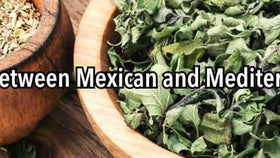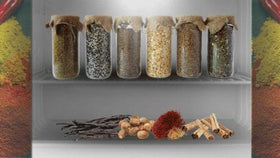Is Dhaniya powder the same as coriander powder?
What is Dhaniya Powder?
Dhaniya powder is fine ground coriander seeds. The only difference between dhaniya powder and ground coriander is the name it is referred to as, typically based on where in the world one resides. Dhaniya powder, as it is called in India, is a key ingredient in traditional Indian cuisine and culture, including such dishes as jeera aloo, biryani, Sheekh kebab, rasam, matar paneer, masala, vindaloo, and a wide range of other curry dishes.
India isn’t the only country where coriander is widely used. Its flavor, aroma, and overall well-balanced profile, with seemingly simultaneous warming and cooling properties, have positioned it to be a favorite spice the world over. As is the case with anything that spans the globe, it is known by many names.
What are other names for coriander?
Coriander Sativum dates to at least as far back as the days of King Tut and was even found in his tomb amongst artifacts of gold, carefully preserved meats, and even the mummified remains of servants and his unborn daughters. As expected of a spice that is coveted by many centuries and cultures, it has been known by many names.
In much of the united states, the word coriander is typically only used to refer to the seed of the Coriander Sativum plant, whereas the leaves are called cilantro. In places like Europe, when someone talks about coriander, they are likely referring to the leaves and they will specify if they are referring to coriander seeds.
Two other quite common nicknames for coriander leaves are Chinese parsley and Mexican parsley because the herb is in the parsley family and is commonly used in both Chinese and Mexican cuisine. Coriander, when referring to both the leaves and the seeds of the plant is also translated to many names in various languages.
How is the flavor of dhaniya powder described?
Coriander seeds, whether ground into a fine powder or used as whole seeds bring forth a much different flavor than the leaves of the same plant. They are adored for their ability to add a level of warmth and nuttiness, while still incorporating contrast with bright floral and citrus undertones that really liven up dishes while maintaining depth and comfort.
How to make Dhaniya powder:
We recommend purchasing whole coriander seeds and grinding them into a powder right before you plan on using them. As is the case with most spices, the volatile oils will begin to release once crushed, ground, or otherwise disturbed. Waiting to grind them will ensure maximum flavor output and integrity.
There are a few options when it comes to grinding your coriander into a powder. The two most popular are a mortar and pestle and an electric spice grinder. Should you choose the latter, we do recommend ensuring it has been cleaned since the last spice was ground in it so you do not taint the flavor of your coriander powder.
Once you have chosen your method of grinding, you will want to determine whether you would like your dhaniya to be raw or toasted. Toasting your seeds first will draw out the oils and lead to more intensity in flavor, although you will lose some of those brighter undertones we mentioned earlier.










Slofoodgroup
Auteur